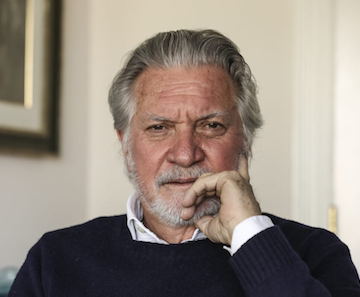Nothing is more popular than peace and how difficult it is to achieve, a statement that is as true as ever when diplomacy is involved in any dispute or controversy. This is also a valid statement when analyzing the tension between Russia and Ukraine and the evolution of their relations after the demise of the Soviet Union (USSR). The fact that Ukraine was one of the four founding republics of the USSR and the first to become independent adds a particular connotation, recalling that Vladimir Putin considers the dissolution of the USSR the ‘greatest catastrophe of the 20th century’.
With this in mind, since my arrival to take up the post of Ambassador to Moscow, which coincided with his inauguration as President of the Russian Federation, I have been able to perceive the close ties between the two countries, which I now see blurred for various reasons. I would add that I was concurrent Ambassador to Kyiv in 2002. Russia has always seen Ukraine as central to its sphere of influence and an integral part of its history; in other words, a nation linked by blood. To suggest an invasion now, citing (geo)political, strategic, and economic reasons, is nonsensical because, in practice, it would mean for the government to start a kind of civil war that is not in line with its stated approach to Ukraine. In this context, the most significant change is that Ukrainians want to free themselves from the protective umbrella of Russia and want to join NATO and the European Union, which – in Russian eyes – means a break with their history. This is indeed about considering themselves a civilization, which would distinguish Ukraine from several republics that were once part of the USSR.
Now, as far as NATO’s eastward enlargement is concerned, I believe that Russia has always maintained the same apprehension. However, the explication of its refusal now would not be a change of strategy but rather a tactic. It would rather be linked, on the one hand, with the opportunity in which the world geopolitical map is very tense due to a very ‘liquid’ global landscape and a resentment of world leadership, which – exacerbated by the pandemic – has brought confusion, instability and uncertainty and, on the other hand, with Ukraine which, in addition to the above reasons, has a significant geographical position in the configuration of a new world order in full development.




